Bulgaria As soon as you set foot in the city of Plovdiv, you can feel the change in the pace of life: people move slower and everyone has more time.
As soon as you arrive in Plovdiv, Bulgaria’s second-largest city after the capital Sofia, you may notice a less hectic traffic flow. The difference becomes more apparent when you reach the city center and stop by a park where old people are playing chess or relaxing in the shade of ancient trees.
In the central Kapana district, people spilled out of cafes and bars onto the pedestrian streets. Groups of young people gathered under brightly painted murals to chat or stand and scroll through their phones. In a cafe next to the Dzhumaya Mosque, people sat for hours sipping Turkish coffee. Even the cats on the cobblestone streets of the old town seemed more languid than cats elsewhere. They lay down, purred, rolled over, and went back to sleep.
If you ask why the city is so relaxed and leisurely, people will say: "because of the aylyak".
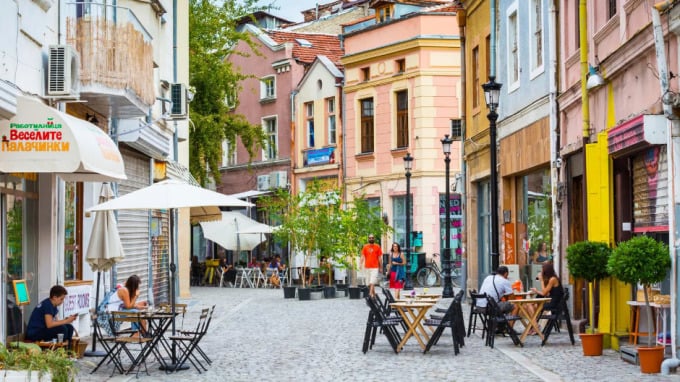
A street corner in Plovdiv city. Photo: Alamy
Aylyak is a word that is almost impossible to translate precisely. It means both a refusal to rush into the endless race of life and a skepticism about the value of ceaseless work.
Artist Plamen Radev Georgiev, who heads the 2019 Theater of Fire Mime Company, conducted a community survey about Aylyak on the occasion of Plovdiv and Matera, Italy being named European Capitals of Culture. Georgiev was born and raised in Stara Zagora, a city nearly 100 kilometers away. When he arrived in Plovdiv in 2018, Georgiev was baffled by the complexity of Aylyak culture. But when people told him he wanted to study it more deeply, they said it was simply “laziness.”
Aylyak means spending time doing something, like sitting down to breakfast with friends and realizing that you are still hanging out when the night falls. Aylyak is also about enjoying life, which is associated with dressing up and hanging out on the streets with nothing to do.
On a deeper level, Georgiev calls this “inner freedom.” “Aylyak means you can cope with life’s difficulties but still be safe from all of them,” he says.
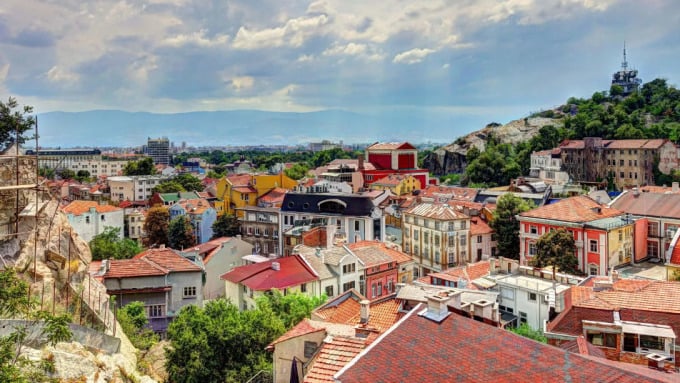
Plovdiv from above. Photo: Alamy
Anthropologist Dr. Svetoslava Mancheva is the director of ACEA Mediator, an organization that connects communities and urban spaces in Plovdiv. Mancheva, who was born in the southwest of the country, has lived in Plovdiv for 10 years and has no plans to move. She says many people move to the city because of the Aylyak spirit. Mancheva’s colleagues who have lived in Berlin for many years say Berlin is great, but without Aylyak, they are happy to live in Plovdiv.
Historian Mary C Neuberger believes that Aylyak is also our response to the challenge of living with strangers, of finding our own space in the city. "The basis of Aylyak is communication. You don't have to like people. What matters is the will to talk to get to know them better," she says.
For most people, Aylyak means closest to “finding space”: finding a space in a busy day to drink coffee, finding corners in the city where you can hang out with friends, spend time playing music, drinking beer, chatting. According to Georgiev, Aylyak also means finding a space of freedom for yourself amid the difficulties of life.
After a few days in Plovdiv, British tourist Will Buckingham quickly got to know the local Aylyak. He spent time walking the streets like them and quickly realized that there was a lot he could do or get done in that time. Interestingly, he did it with more ease and less stress than before.
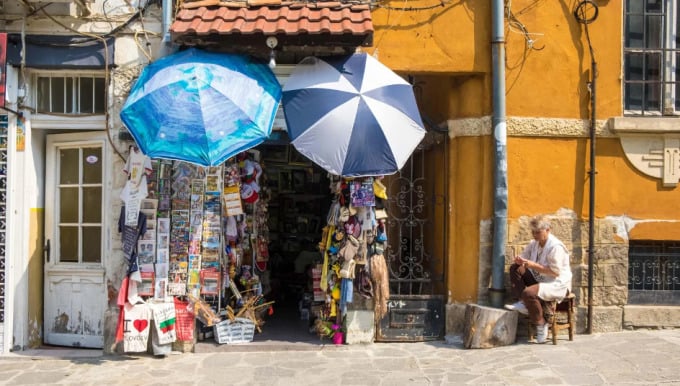
A souvenir stall on a street in Plovdiv. Photo: Alamy
Will emailed Bulgarian writer Filip Gyurov, who studied Aylyak as a philosophy of life and as an alternative to economic growth for his master's thesis at Lund University, to ask if the philosophy could be applied to the rest of the world. Gyurov said that people, especially young people, are facing burnout from the hustle and bustle of life, the need to buy the latest technology or get promoted. Therefore, the core message that Aylyak wants to convey is that we need to slow down, reduce the urgency and live more in harmony with nature and the community.
On his last afternoon in Plovdiv, Will sat in a cafe next to the Dzhumaya Mosque. He ordered a coffee and a dessert. Outside the mosque were rose bushes, a white cat dozing peacefully. He didn’t wear a watch, didn’t feel the need to check his phone. He didn’t have any appointments to interrupt his rest.
“I drank my coffee and let the afternoon pass. I knew I had all the time in the world,” Will said.
Anh Minh (According to BBC )
Source link


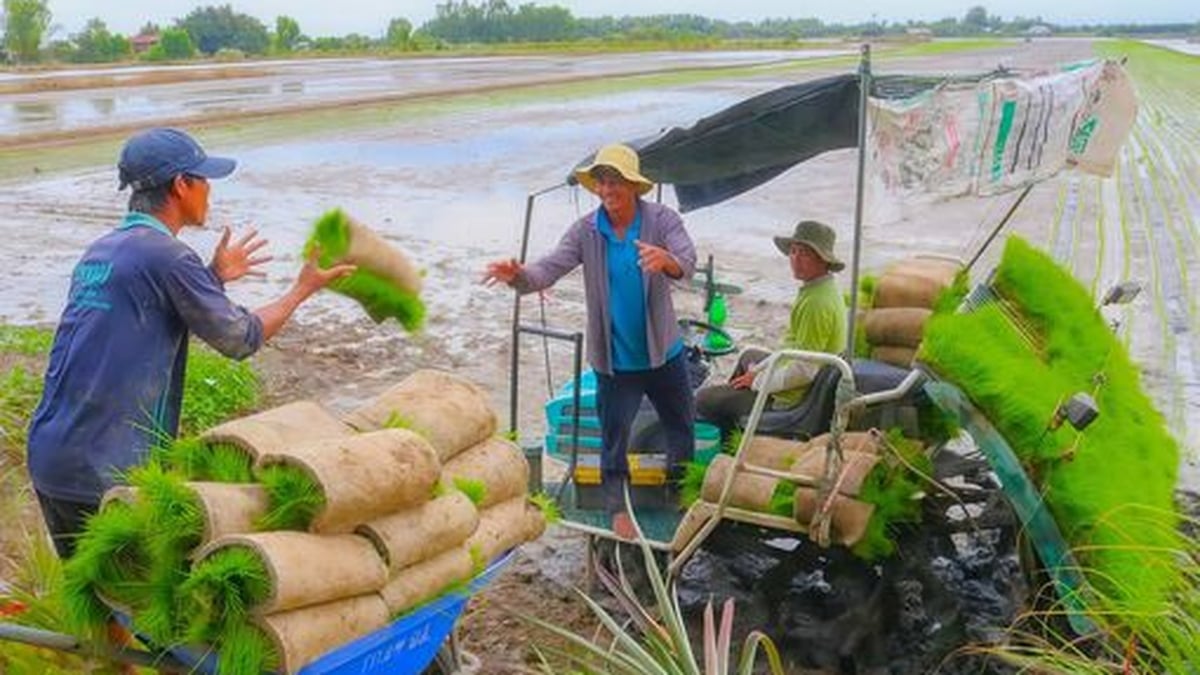


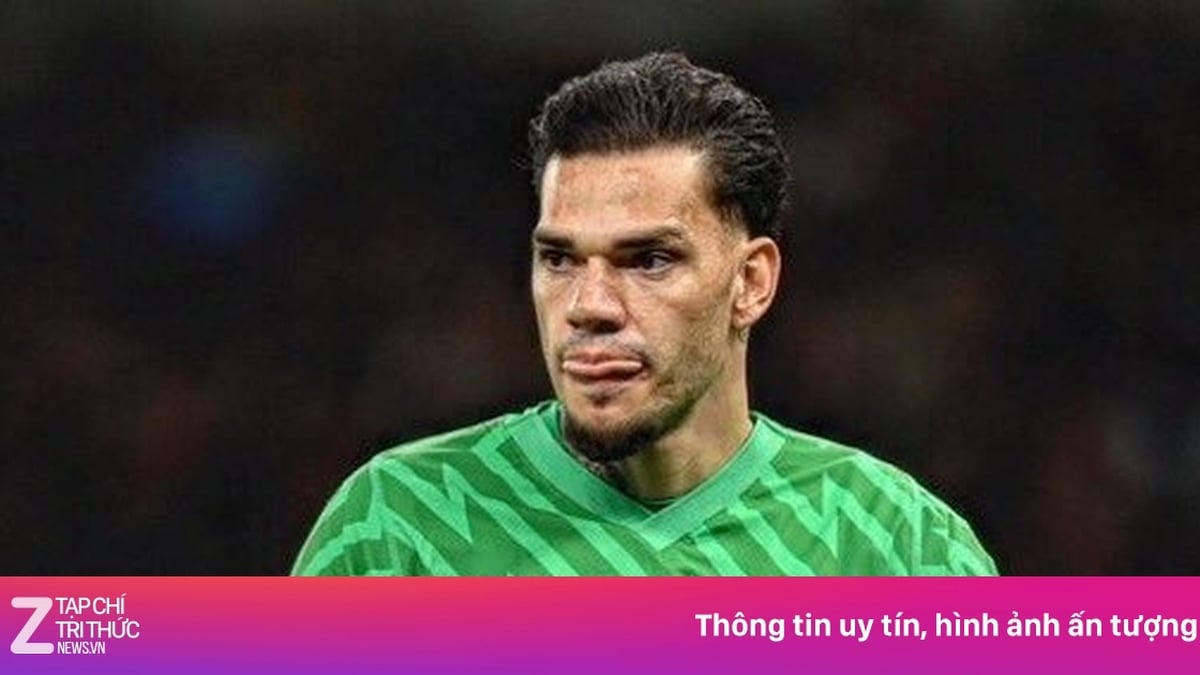
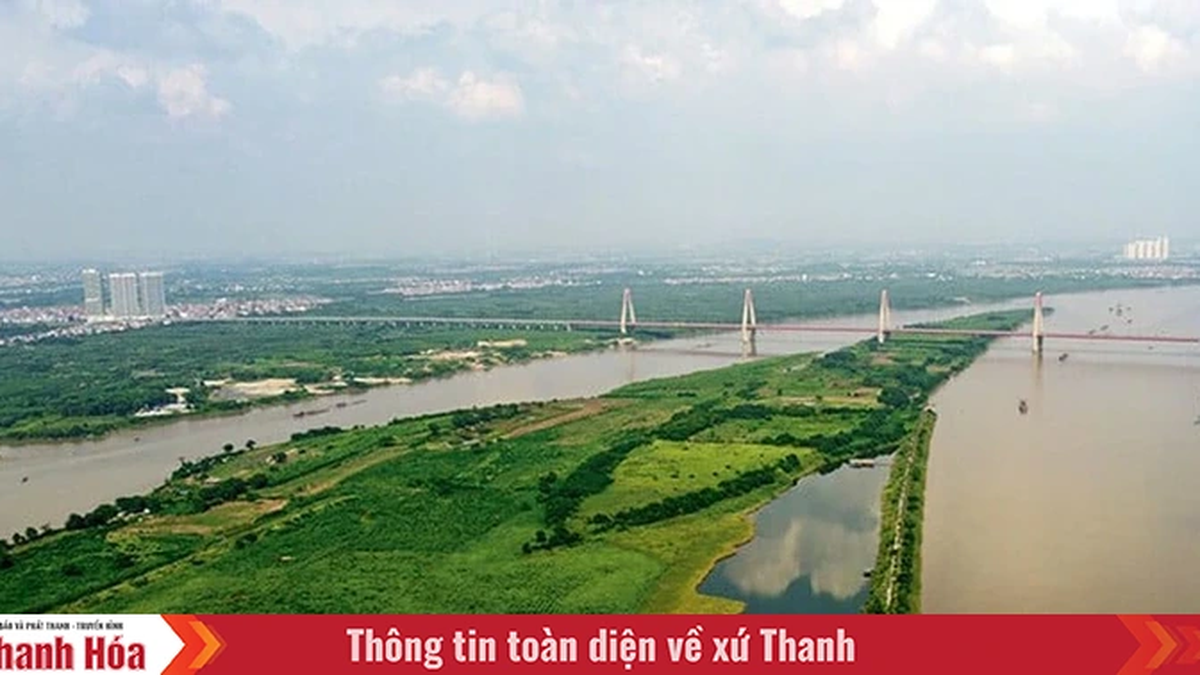

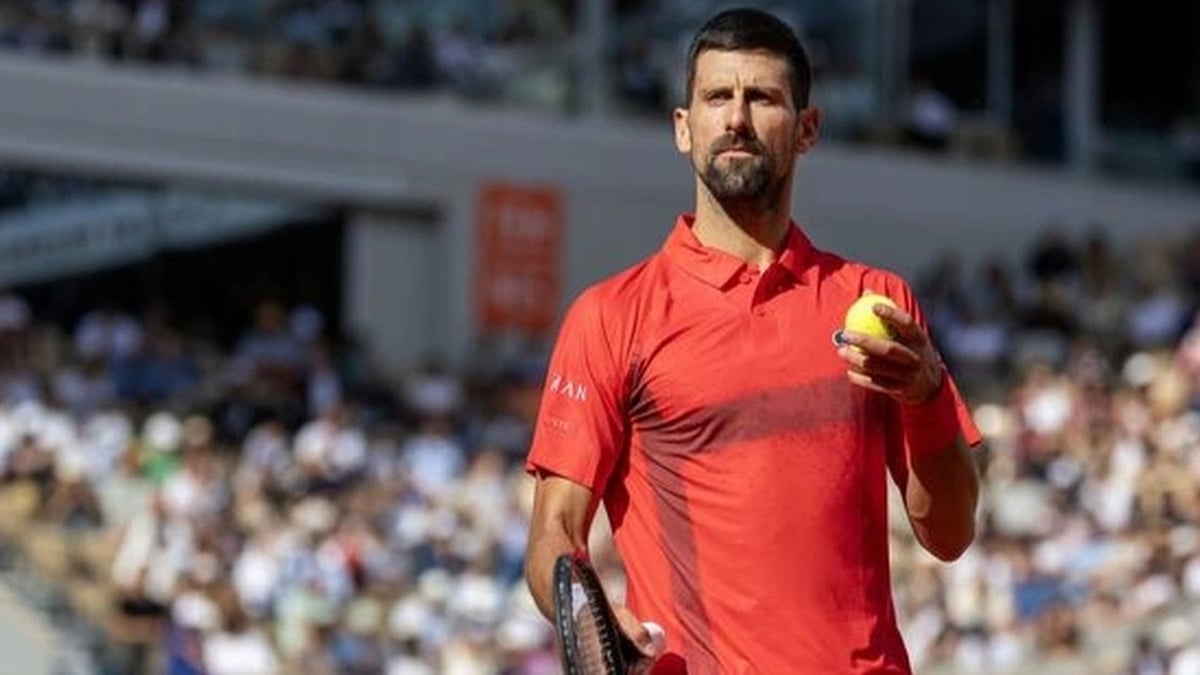


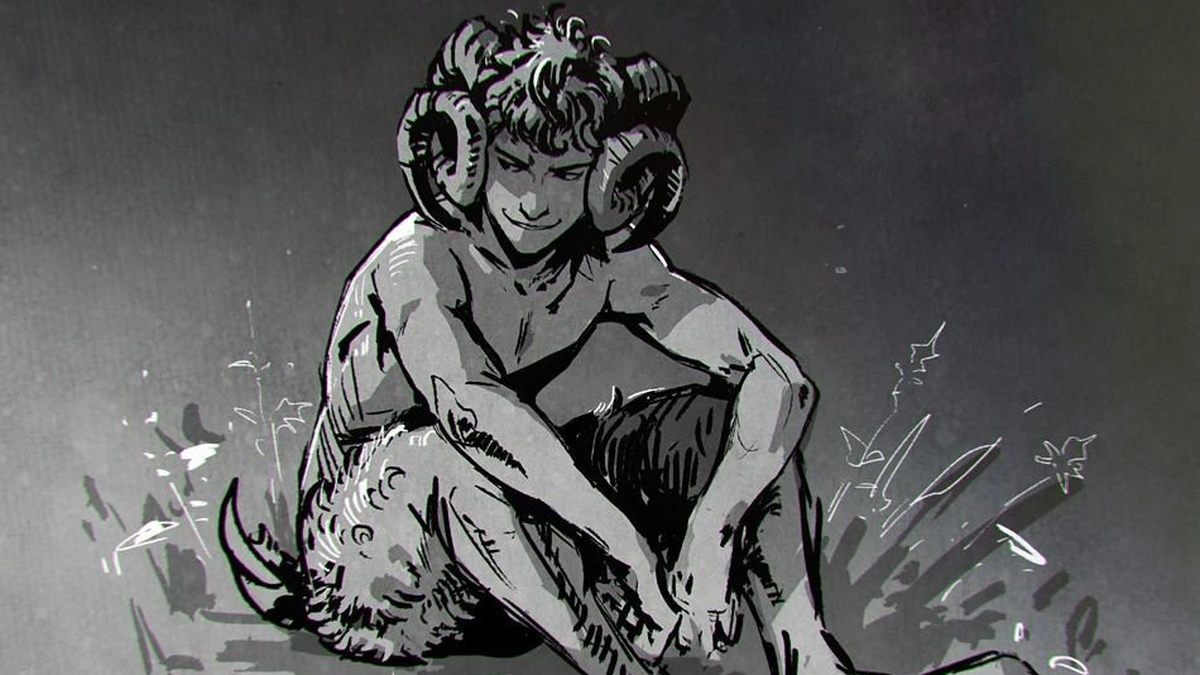


















































































![[Infographic] In 2025, 47 products will achieve national OCOP](https://vphoto.vietnam.vn/thumb/402x226/vietnam/resource/IMAGE/2025/7/16/5d672398b0744db3ab920e05db8e5b7d)





Comment (0)